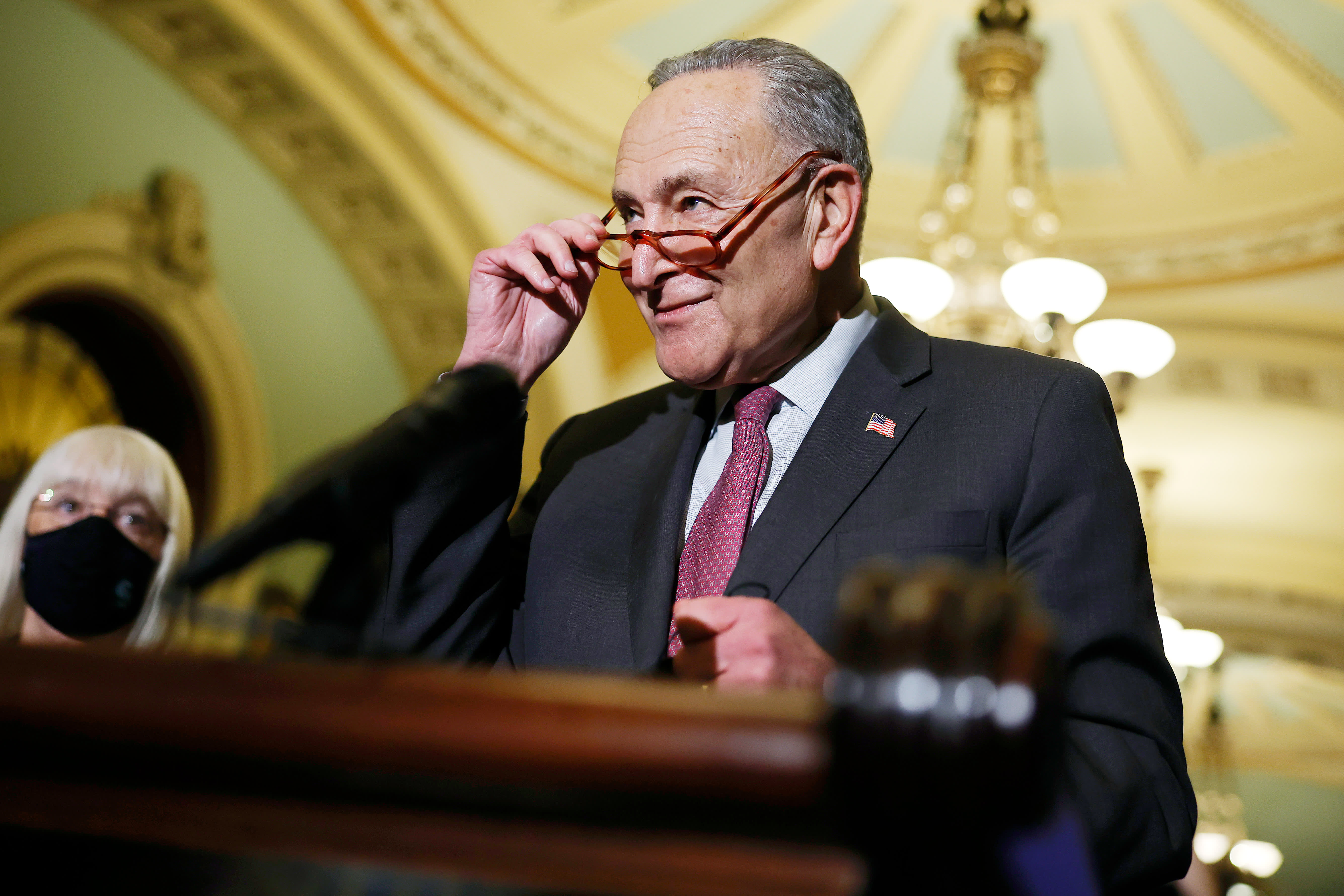
Senate Majority Leader Charles Schumer (D-NY) talks to reporters following the weekly Senate Democratic policy luncheon at the U.S. Capitol on December 14, 2021 in Washington, DC.
Chip Somodevilla | Getty Images
Congressional Democrats moved toward raising the debt ceiling Tuesday, one day before the Dec. 15 deadline that Treasury Secretary Janet Yellen warned could mark the start of the first-ever U.S. default.
The effort began in the Senate, which passed a debt limit hike late Tuesday afternoon in a 50-49 party-line vote.
The bill will go to the House, where the narrow Democratic majority is expected to approve it and send it to President Joe Biden’s desk late Tuesday or early Wednesday. He is set to sign it just hours before the Treasury Department forecasts it would exhaust its tools to pay the government’s bills.
The resolution would increase the debt ceiling by $2.5 trillion. On Tuesday, Schumer said the measure will raise the borrowing limit “to a level commensurate with funding necessary to get into 2023.”
Yellen estimated the U.S. would run out of ways to pay its debt on Dec. 15. If Congress does not raise the debt ceiling before the Treasury misses a payment, the country would default for the first time. The Treasury secretary said she expects the U.S. would slip into a recession if Washington failed to make its debt payments.
A default appears unlikely after 14 Republicans joined every Democrat last week to allow a one-time vote to lift the debt ceiling with a simple majority. The agreement, crafted by Schumer and Minority Leader Mitch McConnell, R-Ky., ended the GOP’s months long threat to filibuster a borrowing limit hike.
The deal allowed Democrats to increase the debt limit on their own without needing the 60 votes usually required to break a filibuster. The Senate is split 50-50 by party, but Vice President Kamala Harris did not need to break a tie because Sen. Cynthia Lummis, R-Wyo., missed the votes.
Democrats and Republicans typically vote together to raise or suspend the debt ceiling. This time, however, the GOP has contended Democrats should increase the borrowing limit on their own as they try to pass a $1.75 trillion social safety net and climate package despite Republican opposition.
“Honestly, I think some of these programs would be a bad idea if the money were free,” Sen. Pat Toomey, a Pennsylvania Republican, said of Democrats’ Build Back Better plan Tuesday morning on CNBC’s “Squawk Box.”
“The idea that we’re going to throw thousands, and thousands, and thousands of dollars at American families who have plenty of income — who have income that’s multiples of the median income. We’re going to give them free programs and free money because they have a child — what is that really accomplishing?” Toomey added. “Other than undermining a sense of personal responsibility and independence?”
Raising the debt limit does not authorize new government spending. Instead, it’s akin to an increase in a consumer’s credit card borrowing limit and allows the Treasury Department to continue to pay off the nation’s bills.
Yellen often notes that Republicans and Democrats would have had to raise or suspend the debt limit even if Congress had passed zero legislation in 2021.




